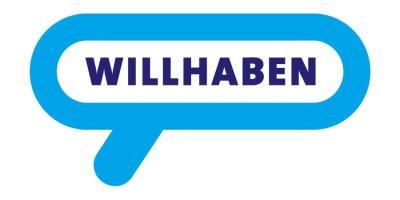
EU-wide Alternative Dispute Resolution since 2016
ODR platform in operation
Since 15 February 2016, consumers have the possibility to directly contact a conciliation body online. Via the ODR platform of the European Commission, one can initiate a conciliation procedure online in a very unbureaucratic way. ODR stands for "Online Dispute Resolution".
- Consumers residing in the UK will then no longer be able to submit new complaints on the ODR platform. They will also no longer be able to take action on ongoing cases on the platform (e.g. forwarding to a dispute resolution body, contacting an advisor in the UK or viewing resolution).
- Consumers residing in the EU, Norway, Iceland or Liechtenstein will no longer be able to use the ODR platform to submit complaints about traders in the UK or refer their case to a dispute resolution body in the UK.
- UK-based traders will no longer have access to their personalised area on the ODR platform.
- Traders based in the EU or Norway, Iceland or Liechtenstein will no longer be able to engage in ongoing cases involving UK consumers through the platform, nor will they be able to propose dispute resolution bodies in the UK.
- All users will have the option to export case data concerning them on UK consumers or traders from their personalised area on the ODR platform before 31/12/2020.
- No user will then be able to contact the UK Online Dispute Resolution advisor. Any contact must be made before 31/12/2020.
How does the ODR platform work?
Consumers fill out an online complaint form. This is sent to the trader concerned, who in turn suggests a conciliation body. If the consumer agrees, the complaint is forwarded to the relevant body, which initiates the conciliation procedure. This may take a maximum of 90 days, starting with the receipt of all relevant documents by the conciliation body.
In each EU member state there is an ODR contact point to which consumers can turn in case of problems with the ODR platform. In Austria, this is the European Consumer Centre Austria (ECC). Through years of experience in consumer counselling, the ECC can provide efficient help and competent answers. As a member of a network of EU member states as well as Norway and Iceland, the ECC also knows how to provide advice, especially in cross-border conflicts.
Empowering consumers in disputes
The Consumer Barometer 2015 had shown that only few consumers defend themselves in case of problems with a company. On the one hand, they often do not know about their rights, on the other hand, they do not think they have much chance of success. Many shy away from the idea of taking legal action. This negative attitude leads to insecurity and mistrust among consumers, especially in transactions conducted online (online shopping, internet travel agencies, etc.). The European Union wanted to counteract this tendency. In order to strengthen consumer confidence and thus the internal market, a system of out-of-court redress bodies was developed.
Area-wide in the EU
Since 2016 at the latest, there have been conciliation bodies in every EU member state, which are either responsible for specific sectors or in general.
In Austria, many were already in place beforehand, such as the RTR for disputes with mobile phone providers or the Internet Ombudsman's Office for transactions conducted online. There are arbitration boards for the following subject areas:
- Telecommunications and postal services
- Energy services
- Financial services
- Passenger and passenger rights
- Prefabricated house business
- Internet business
There is also the general "Verbraucherschlichtung Austria" (Consumer Arbitration Austria), which takes care of problems that are not covered by another arbitration body.
This (German language) brochure informs about the possibilities of consumer arbitration in Austria:
Background
On 21 May 2013, the EU adopted new legal provisions on out-of-court dispute resolution procedures, both offline (ADR - Alternative Dispute Resolution) and online (ODR - Online Dispute Resoultion). The aim is to enable all consumers to have access to dispute resolution bodies and thereby strengthen their confidence in the European Single Market. In Austria, the provisions were implemented in the Alternative Dispute Resolution Act (AStG).
Benefits:
In contrast to the legal process via a court, which many associate with great effort, high costs and nerve-racking long waiting times, ADR and ODR are to be established as fast, free or low-cost and very simple alternatives.
The ADR bodies are independent, neutral and aim to reach an amicable solution. This means that they do not take sides, neither for the consumer nor for the entrepreneur, but mediate between the two in a balanced way in order to reach a compromise. The procedure is confidential, free of charge in Austria and should be concluded within 90 days.
Obligation to inform:
In the event of a dispute, companies are obliged to indicate which arbitration board would be responsible for their area. However, participation is usually voluntary and can be discontinued at any time by either side.
The following sectors have been obliged to participate:
- Telephone, internet or radio operators
- Electricity and natural gas companies
- Railway, bus, shipping and airline companies
- Postal service providers
These must provide information about the relevant arbitration board on their website or in their general terms and conditions.
Good to know:
As long as conciliation proceedings are ongoing, time limits (e.g. limitation period) are suspended. The outcome has no effect on any subsequent court proceedings. As the proceedings are confidential, no information about the outcome may be passed on to the media, for example (confidentiality obligation). If no solution can be reached between consumer and trader in the course of the out-of-court procedure, the possibility of legal action remains open.
As the ODR contact point, the ECC Austria is happy to answer your questions about an out-of-court conciliation procedure.
Related Links
EU Commission: ADR & ODR
http://ec.europa.eu/consumers/solving_consumer_disputes/non-judicial_redress/adr-odr/index_en.htm
ECC Germany: ADR bodies in Europe
https://www.evz.de/en/alternative-dispute-resolution/adr-in-europe/









